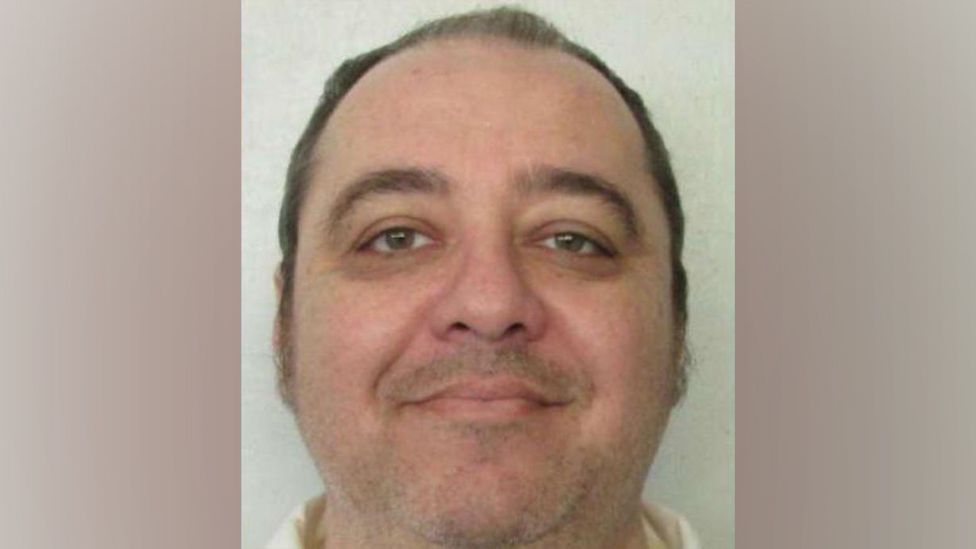25 minutes ago
About sharing
A judge in Alabama will decide if a new method of execution using pure nitrogen gas can be used for the first time.
Two other states are considering the method as an alternative to lethal injections, after a spate of botched executions in the US.
But lawyers for Kenneth Eugene Smith, convicted of a 1988 murder, argued the method was unconstitutionally cruel.
On Wednesday, they urged the judge to block his 25 January execution using nitrogen hypoxia.
Robert Grass, an attorney for Smith, told the court the execution method could expose his client “to the risk of superadded pain,” which violates the US constitution.
Alabama’s attorney general’s office, however, argued that it was humane.
To carry out the method, a mask would be placed over Smith’s face, and fitted and sealed around his nose and mouth. The mask would then be used to replace breathable air with nitrogen, resulting in death from lack of oxygen.
According to Alabama’s execution protocol, the nitrogen would be administered for at least 15 minutes or “five minutes following a flatline indication on the EKG, whichever is longer”, the Associated Press reported.
An assistant professor of anaesthesiology at Harvard Medical School who testified on Smith’s behalf on Wednesday said nitrogen hypoxia can induce nausea and create the risk of choking on vomit.
Dr Robert Jason Yong also said there was a risk that the method could cause the sensation of suffocation.
Alabama attorney general’s office called Mr Yong’s assessment speculative and asked him to provide examples for some of his claims. Dr Yong replied that there was limited information about nitrogen hypoxia in humans.
US District Judge R Austin Huffaker Jr, who is presiding over the case, did not indicate when he would rule. However, other states will be eyeing his decision.
Mississippi and Oklahoma have also considered turning to nitrogen hypoxia as a legal alternative.
Execution by lethal injection, the method used by most states where the death penalty is legal, has been criticised for a number of botched attempts.
And Alabama’s ability to effectively carry out executions using lethal injection has come under heightened scrutiny recently.
Since 2018, the state has botched four execution attempts, leaving some inmates alive and forcing them to deal with the trauma of facing a second execution.
Smith, who was sentenced to death in 1996, is one of those inmates. His first execution attempt by lethal injection failed in November 2022.
In a court filing by Smith’s lawyers days later, he claimed that he felt sharp and intense pain throughout the attempted lethal injection process, “as though he were being ‘stabbed’ in the chest”, according to the BBC’s media partner CBS.
Smith is not the only one with a lawsuit in Alabama challenging the risks of nitrogen hypoxia.
Reverend Jeffrey Hood, a minister who presides over Alabama executions, has said using nitrogen gas could place his life at risk, too, and prevents him from properly administering spiritual support to Smith.
The method has been criticised for the potential deadly threat it can pose to others in the area – the execution team, spiritual advisers and witnesses – in the event that gas were to escape the hose supplying it.
Mr Hood filed a separate lawsuit last week. In it, he claimed that the execution method “presents potentially significant dangers to his own life, and violates the religious liberties of both himself and Mr Smith”.
Related Topics
16 May
21 January
10 January
